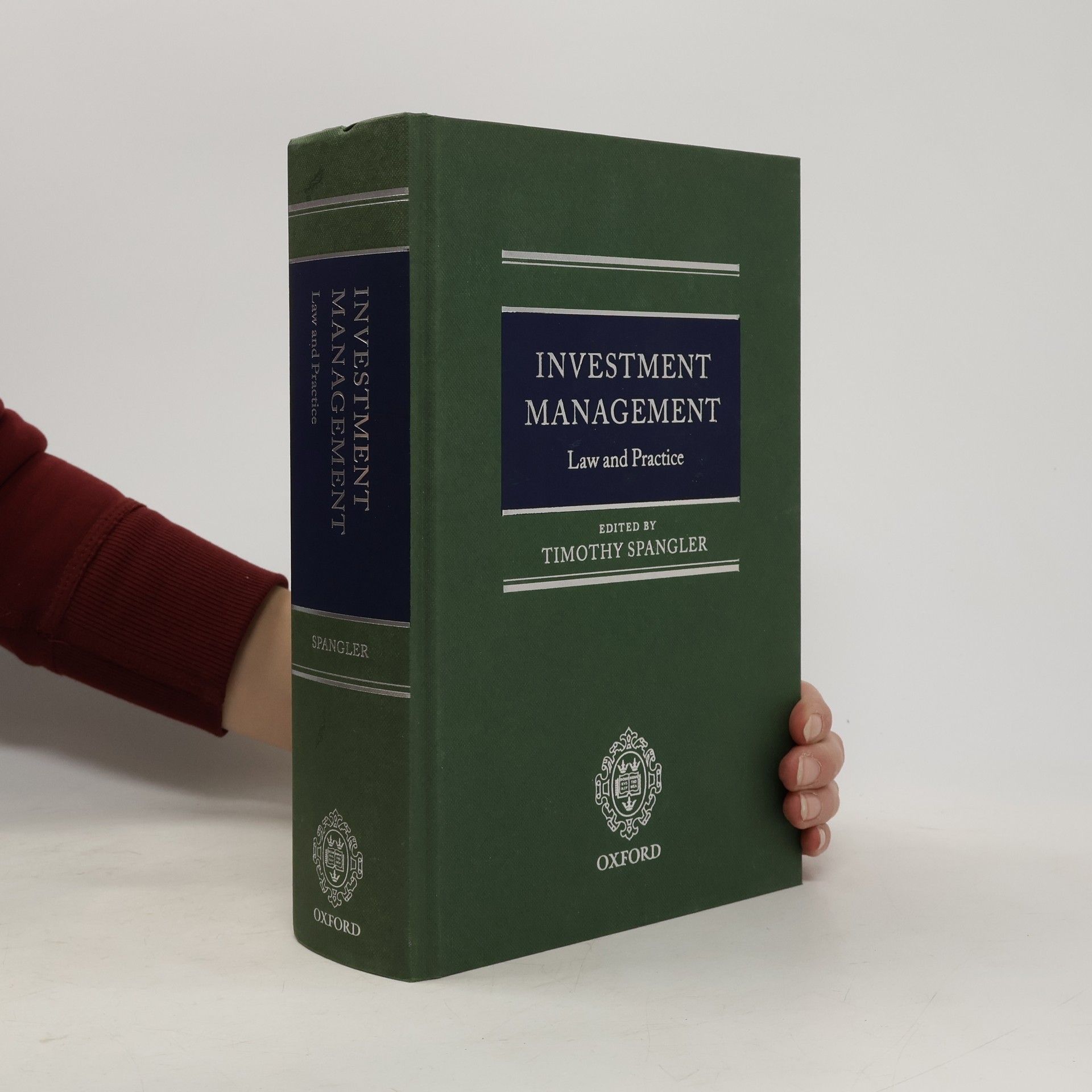Investment Law and Practice provides an in-depth guide to the processes and legal and regulatory issues relating to investment management. Edited by Timothy Spangler, a New York qualified lawyer and English solicitor, this work provides a comparative consideration of UK and US practice.The work adopts a three part structure. The first part examines the legal principles underlying investment management and the regulatory position in both the UK and the US. It provides lawyers with guidance on the tort aspects of practice in this area, looking at the common law relating to standard of care, contractual duty and fiduciary duty. The second part includes a detailed consideration of those aspects of particular relevance to investment management law, such as derivatives, soft commission and market abuse. The third part considers pertinent issues relevant to each client sector to provide a practical research tool for advising different categories of client.This work will offer valuable information on the regulatory changes and market activity in this dynamic and increasingly specialist practice area.
Timothy Spangler Books
Timothy Spangler writes about global finance and politics. His deep understanding of the financial world, honed by two decades working on Wall Street and in the City of London, allows him to uncover the trends shaping international affairs. Spangler is the author of an award-winning foreign affairs column and the "Law of the Market" blog, dissecting financial regulation and Wall Street politics. His commentary appears in leading newspapers internationally and he is a frequent media guest. Beyond his writing, Spangler also teaches law at universities in the US and the UK.


A Practitioner's Guide to Alternative Investment Funds
- 247 pages
- 9 hours of reading
Alternative investment funds come in many shapes and sizes. They invest in a diverse range of asset classes and pursue a myriad of different investment strategies. However, sufficient structural similarities exist between the different types of alternative investments funds (hedge funds, venture capital funds, buy-out funds, real estate funds and ever more esoteric vehicles) that a general description can be give of how they are established and operated.